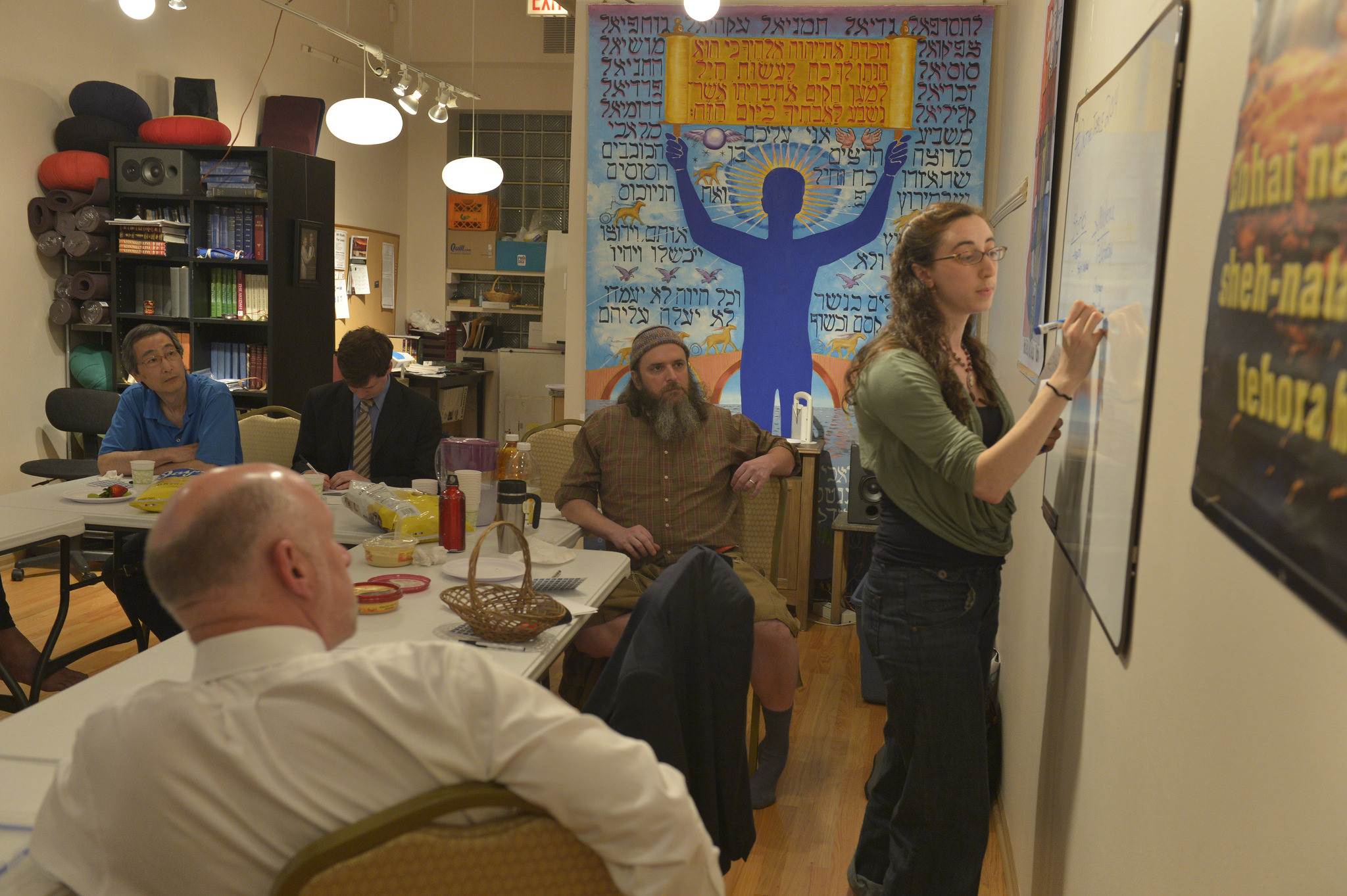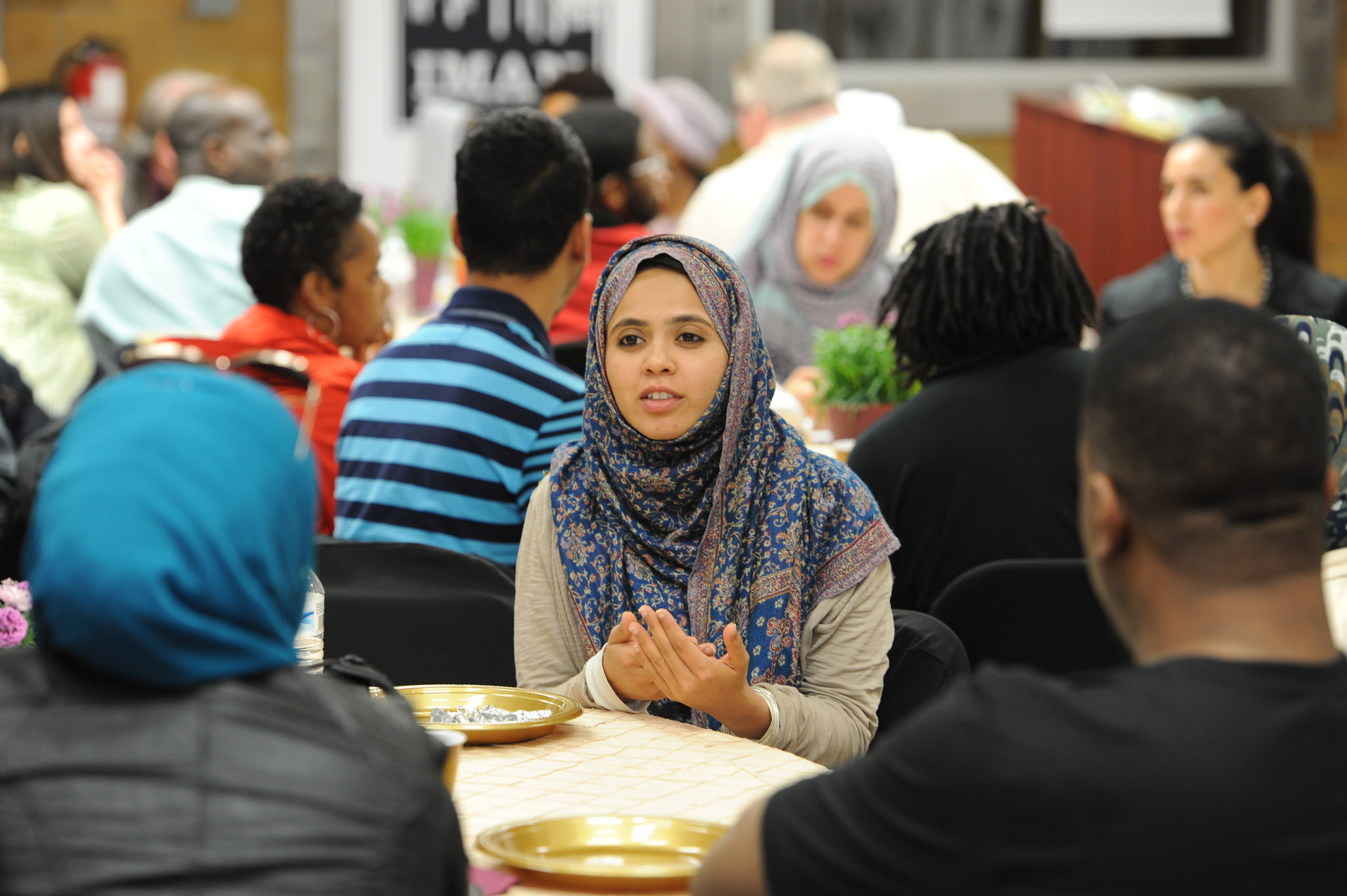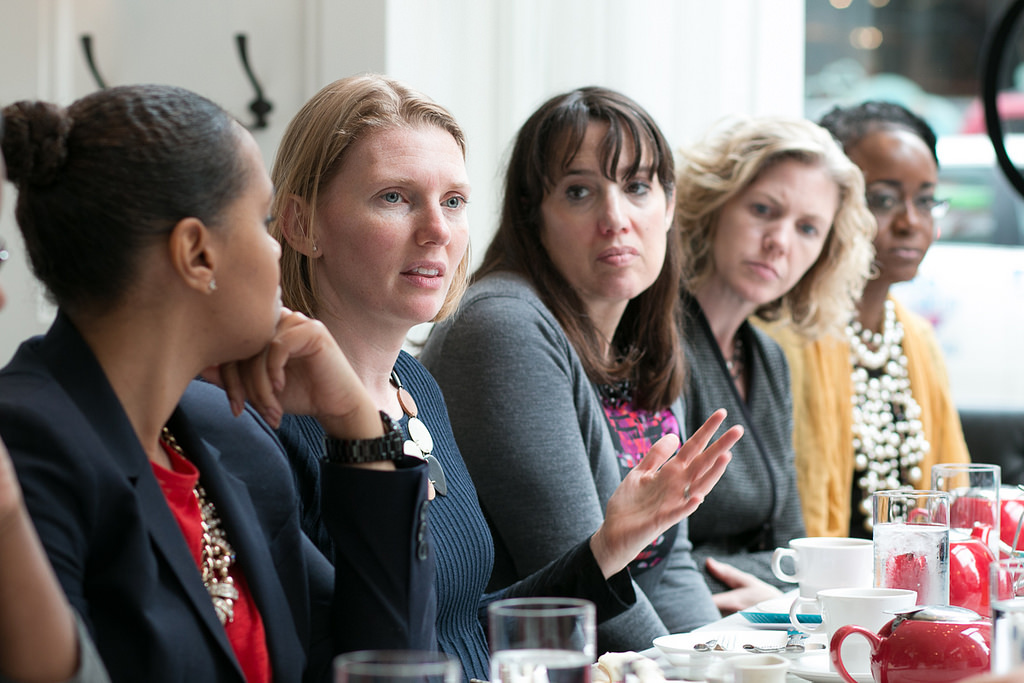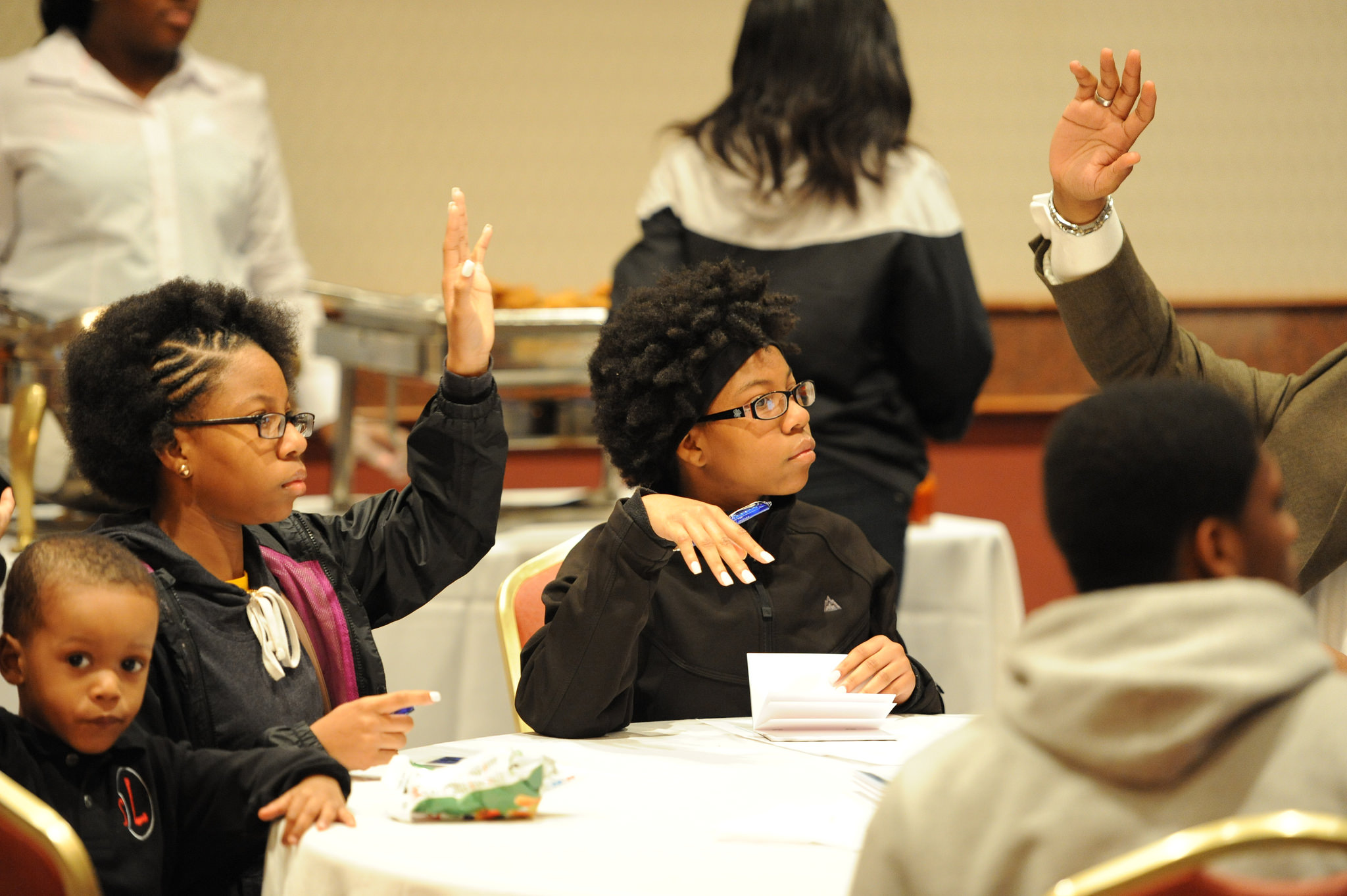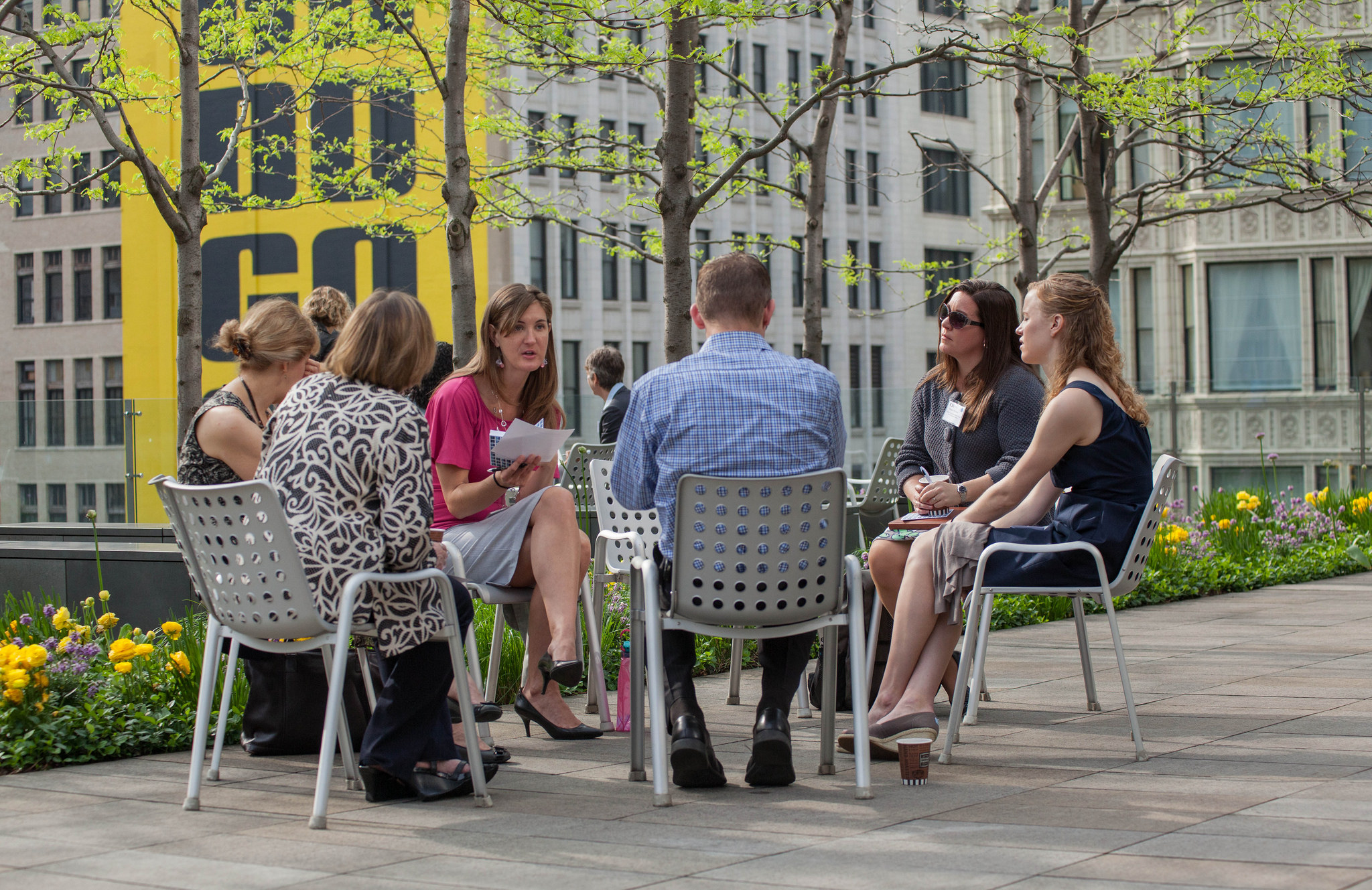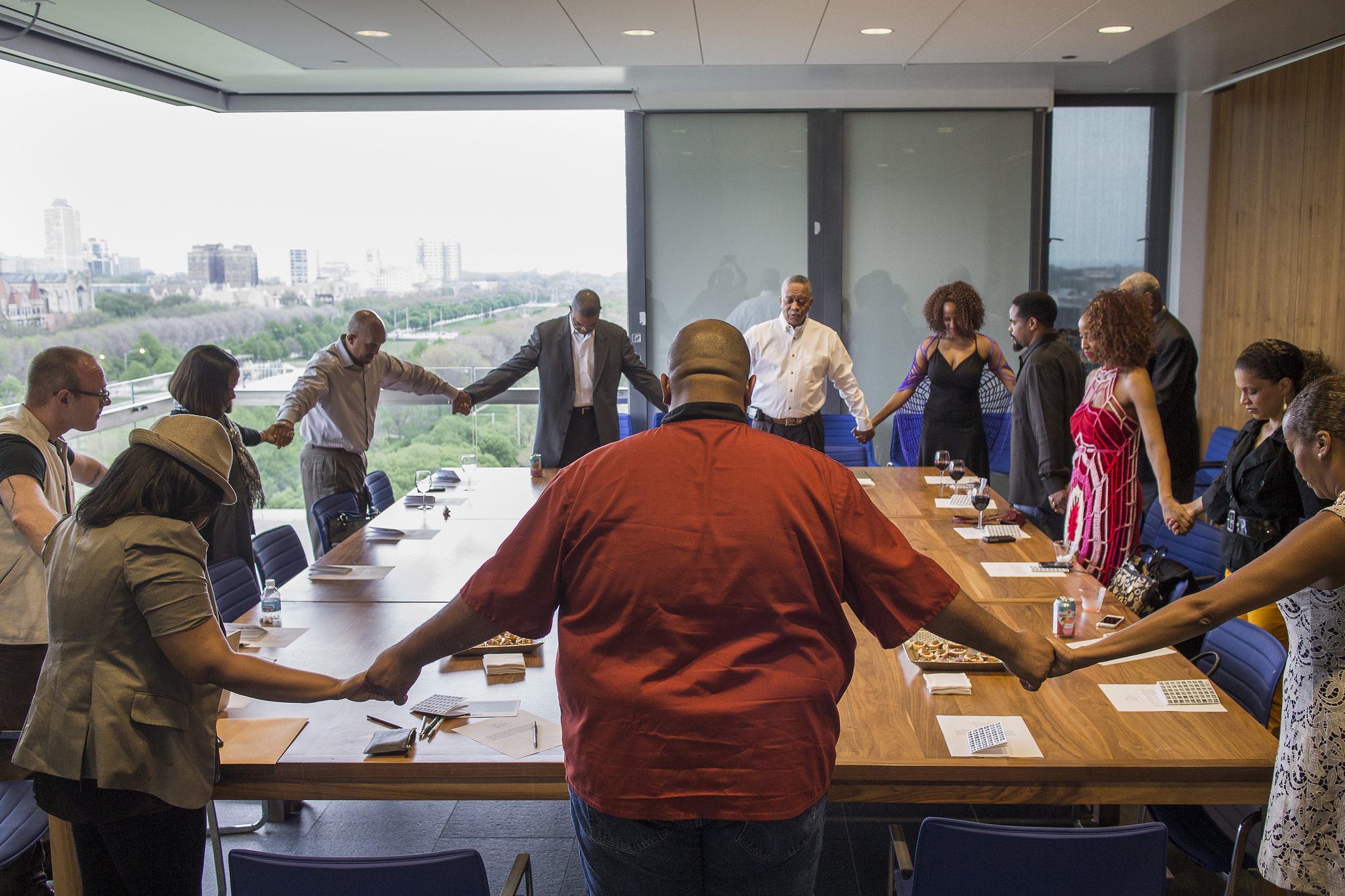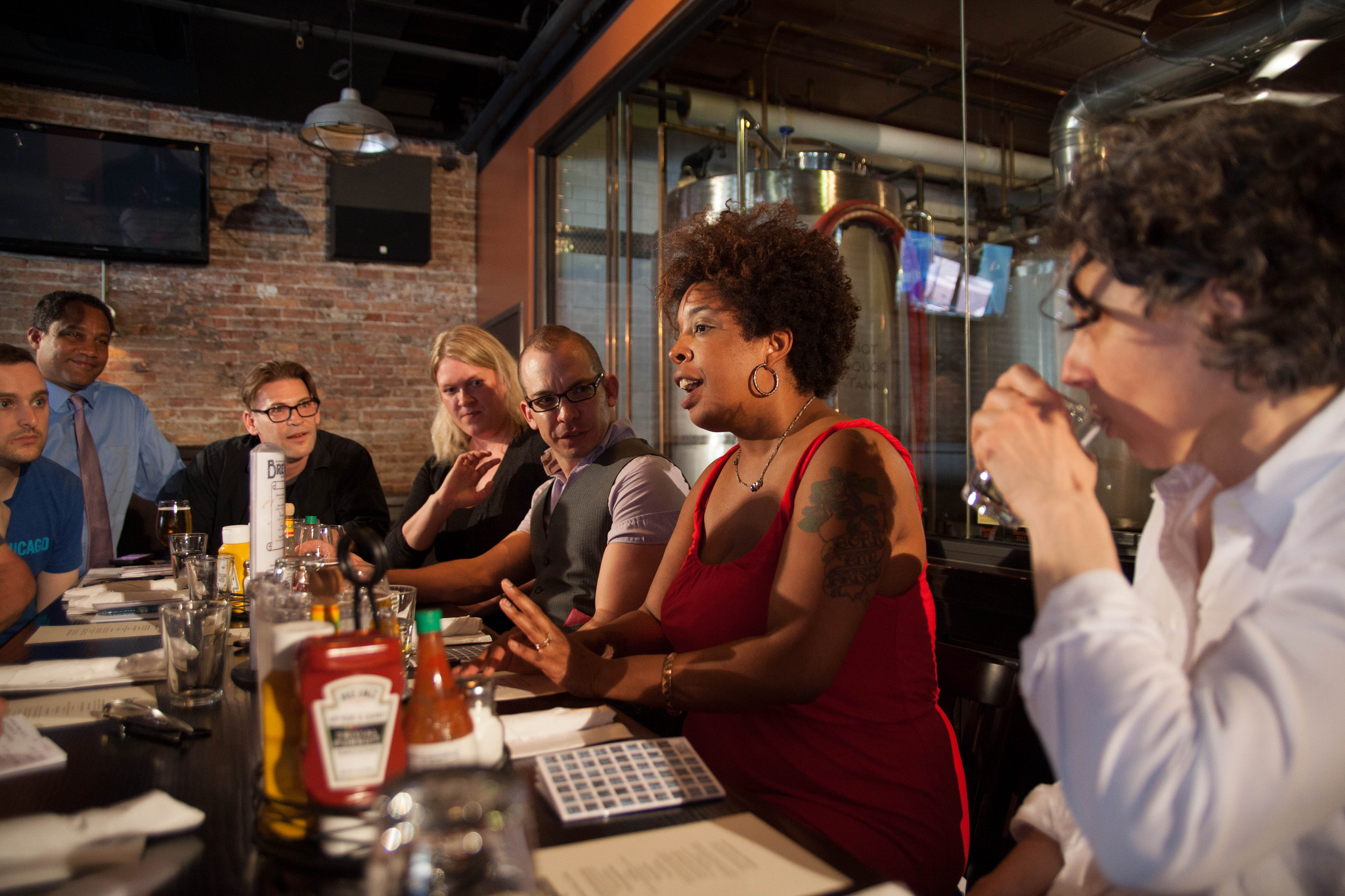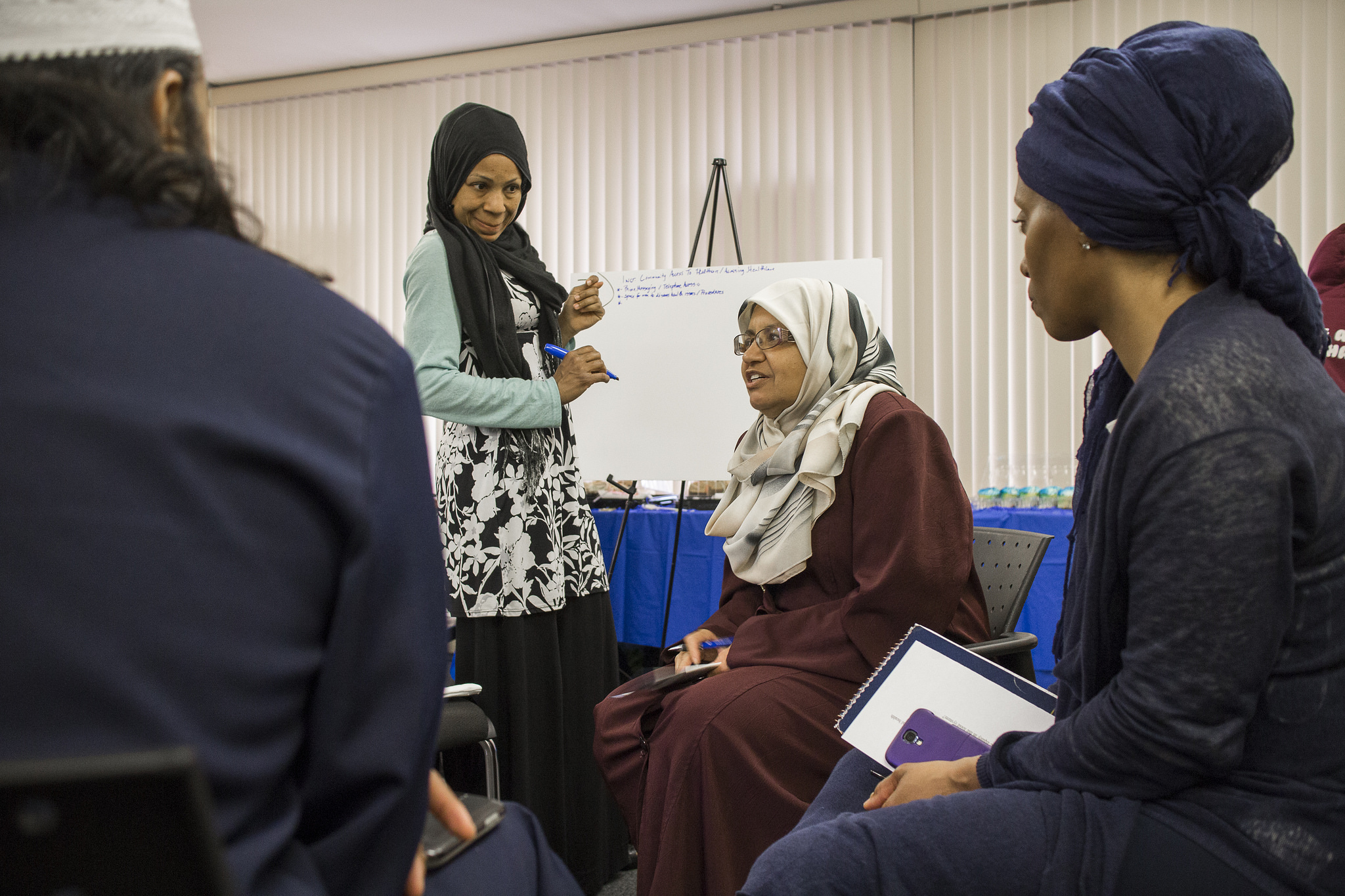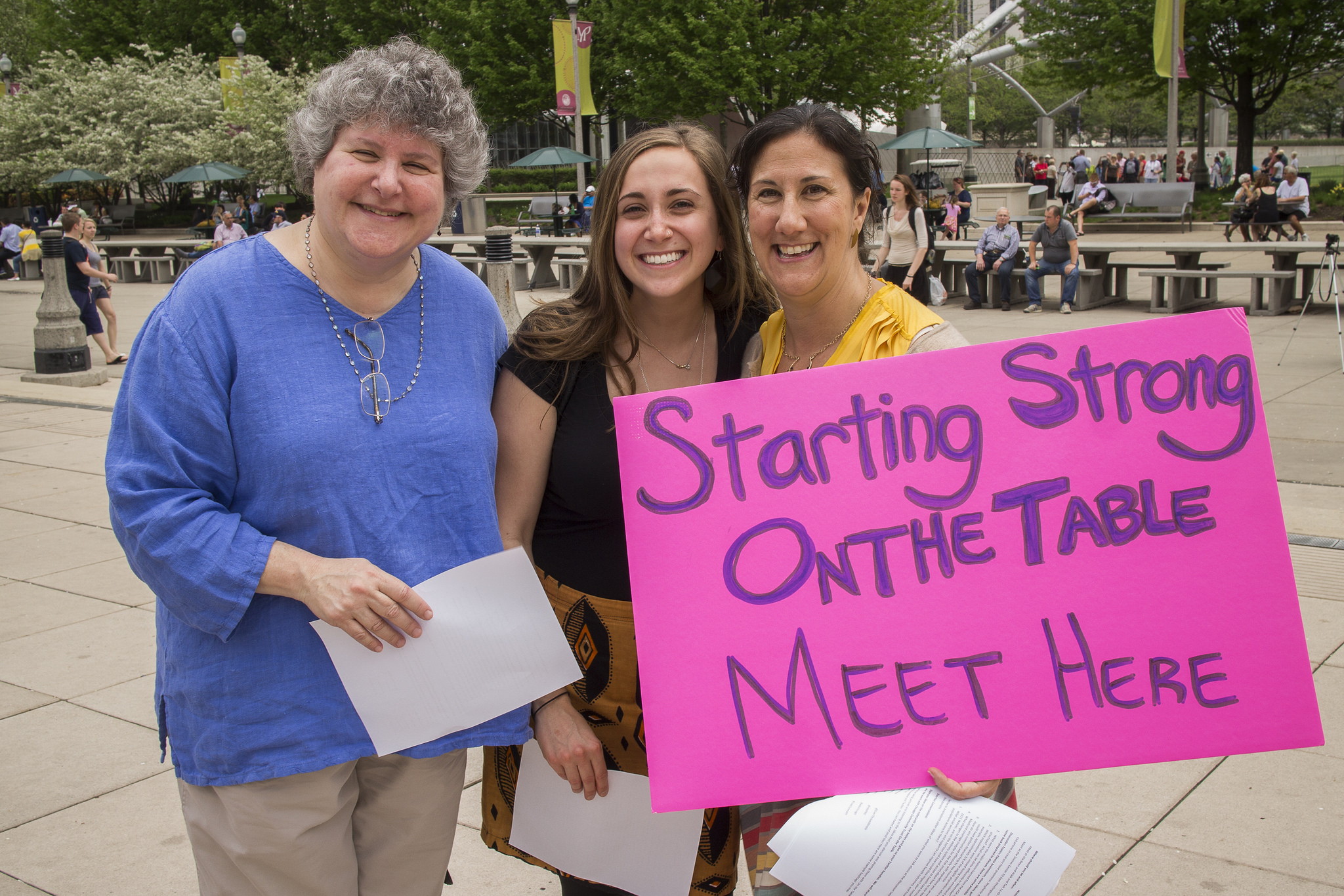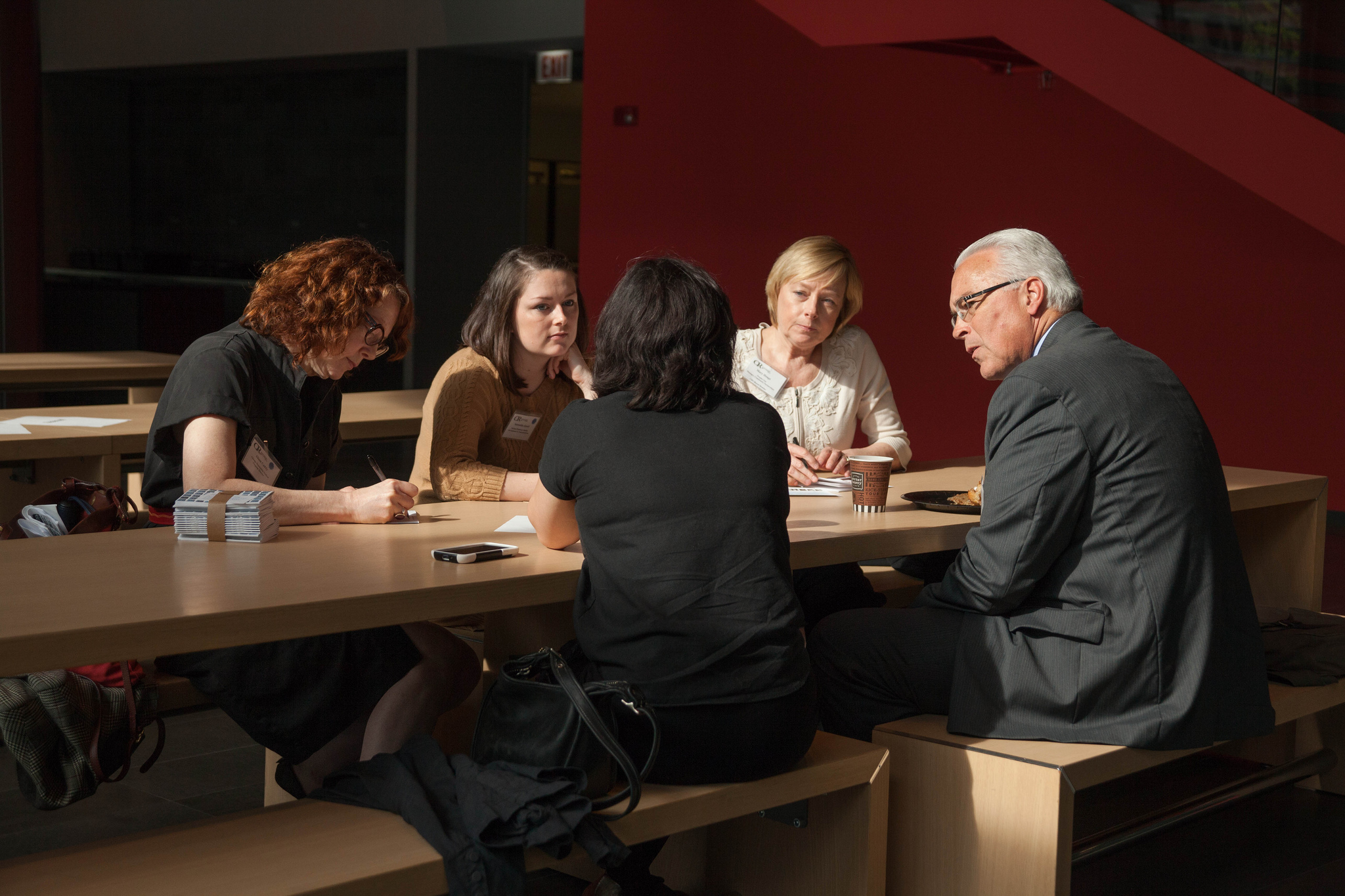On May 12, 2014, thousands of Chicago residents participated in one of the country’s boldest, most innovative civic experiments.
At breakfasts, lunches and dinner tables across the region; in restaurants, churches, offices and family homes; more than 11,500 residents representing every Chicagoland neighborhood and every residential zip code, as well as 11 surrounding counties, gathered to discuss how to improve their communities. This massive event, created by The Chicago Community Trust and called On the Table, brought together leaders from Chicago’s civic, faith and business communities, as well as teachers, students, public officials and ordinary residents of all stripes.
From this single day of conversation, participants generated more than 1,000 ideas, such as creating mentorship opportunities that invest in teenagers; leveraging our world-class museums as research hubs that engage and connect with local residents as well as visitors; and converting vacant homes into shared residences for young people, creating jobs and revitalizing neighborhoods.
Today, the ideas born from this initial effort in 2014 are being translated into on-the-ground action. For example, one Chicagoan recruited attorneys to help neighborhood residents propose solutions for police conduct and accountability. Another participant formed a coalition to address the neighborhood’s obesity rate by raising funds for a community kitchen, bike paths and community gardens. We also convened six “collaboratories” — working groups of On the Table participants, each aimed at advancing one concrete idea toward community change. The fruits of these efforts include the recent opening of an “Innovation House” in Chicago’s Englewood neighborhood, which provides housing for young people in underserved neighborhoods. A second Innovation House is scheduled to open in East Garfield Park next year.
On the Table brought together more than 11,500 Chicagoland residents to share a meal and ideas for improving their communities.
On the Table began as a commemoration of the 99th anniversary of The Chicago Community Trust, which has been dedicated for the past century to leading and inspiring public initiatives that measurably improve our community’s quality of life. Since our founding in 1915, the Trust has awarded approximately $2 billion in grants to more than 11,000 local nonprofit organizations. Today, as the country’s third-largest community foundation with assets of $2.2 billion, the Trust leverages our community’s collective knowledge, creativity and resources for greater impact than any of us can make alone.
We know that a strong and thriving society requires everyone participating in the public square. To solve challenges, to decide what kind of society we intend to be and how we can advance those shared values, we need informed and empowered residents whose voices contribute to an open exchange of ideas.
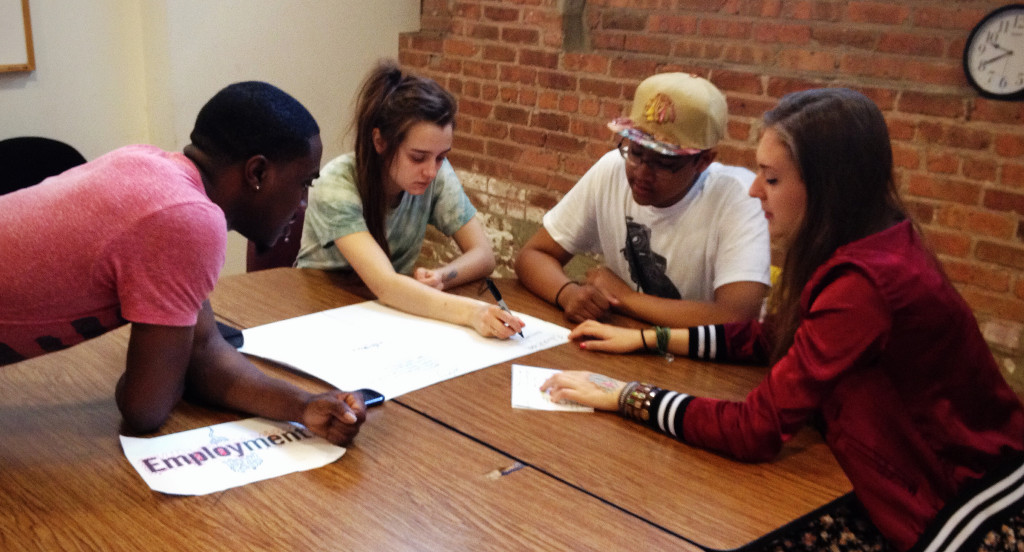 We envisioned On the Table as a day that united the region in fellowship—thousands of residents gathering at common tables to share a meal and a heartfelt conversation about Chicago’s future.
We envisioned On the Table as a day that united the region in fellowship—thousands of residents gathering at common tables to share a meal and a heartfelt conversation about Chicago’s future.
The results have been an enormous testament to the commitment and energy of Chicagoland residents. Participants shared the ideas they generated on social media, through the On the Table website, and in a survey administered by the University of Illinois at Chicago’s Institute for Policy and Civic Engagement. Eighty percent of participants in our 2014 event reported that On the Table had improved their understanding of specific community issues, and 57 percent exchanged contact information with other attendees for future collaboration.
Our second On the Table convening, in 2015, was an even greater success. This time, the conversation grew to 25,000 people and 2,000 mealtime conversations, as well as a national dialogue that opened up on social media. On the Table won 18 million digital impressions; #onthetable was the top trending topic on Twitter in the Chicago region for much of the day and one of the top 10 trending topics nationally.
Our 2015 event also included more nonprofit organizations leveraging the event to host important conversations on topics aligned with their mission. Youth participation grew too, with numerous school districts, service organizations and the Cook County Juvenile Temporary Detention Center hosting events where young residents raised their voices.
In its 2015 post-event study, the Institute for Policy and Civic Engagement reported “evidence of On the Table contributing to building social capital—the bonds among people that form our social fabric—among residents of the city and region.” The study found, for example, that as many as 16 percent of 2014 attendees had collaborated with their fellow participants on a new idea or project. Participants are volunteering, conducting research, raising awareness about the issues they care about and creating new programs and organizations to tackle the challenges they see.
The impact of the 2015 event promises to be even greater. After a profound conversation on faith and equity, one church has established a Black Lives Matter committee, designed to build trust and cooperation between community organizers and churches across the South Side. An affordable housing complex on the West Side used On the Table to listen deeply to residents’ concerns. In response, among many other changes, they partnered with a nearby hospital to establish a book discussion group focused on improving African-American women’s health; they also hired a new security firm and instituted regular resident meetings with the company to address safety concerns.
The unexpected momentum of the first On the Table event has prompted our commitment to make On the Table an annual moment, an integral component of the way we interact with our region. We also hope that the lessons we’ve learned from this experiment can benefit other communities as well. Through the Knight Foundation, the Trust received grant funding to create an On the Table franchise model for other cities. In May 2016, civic leaders from 30 communities will gather in Chicago for a two-day symposium and a toolkit to replicate this public square in their own communities.
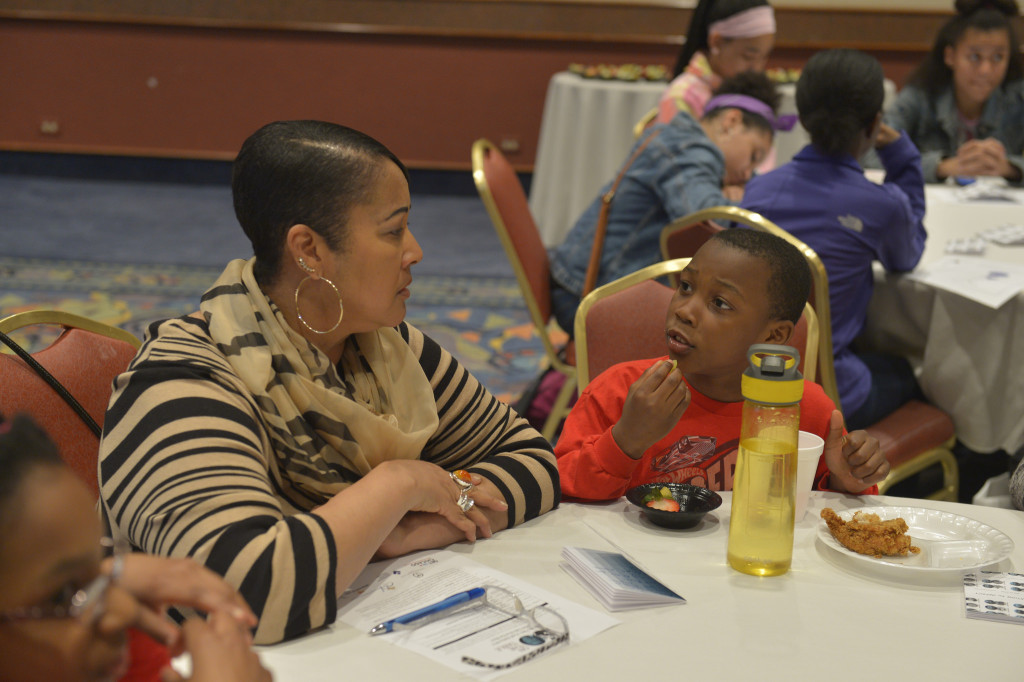 As the Trust moves forward into a second century, we are consciously refocusing our grant making towards leading change on deeply entrenched social issues. On the Table conversations and surveys revealed four systemic social issues as the leading local concerns: Economic issues and poverty; equity and social inclusion; education and youth development; and the justice system and public safety. Going forward, the Trust’s portfolio of change initiatives will include these key issues that the people we represent and serve care most about.
As the Trust moves forward into a second century, we are consciously refocusing our grant making towards leading change on deeply entrenched social issues. On the Table conversations and surveys revealed four systemic social issues as the leading local concerns: Economic issues and poverty; equity and social inclusion; education and youth development; and the justice system and public safety. Going forward, the Trust’s portfolio of change initiatives will include these key issues that the people we represent and serve care most about.
While we will always support essential services that those in our communities depend on, we also bear a responsibility to leverage our knowledge, financial resources and civic/governmental partnerships to make progress on issues that require complex, coordinated solutions.
In the foundation sector, we traditionally define impact by quantifying the services that our grants help nonprofits deliver. But the most deep-seated issues that challenge our society today — issues of violence and justice, of equity and opportunity — require more than charitable donations. They require new models for how individuals, businesses, nonprofit organizations and governments can collaborate for the common good. On the Table inspires us as a philanthropic success story because 25,000 individuals and counting have accepted the invitation to join in conversation, and to take collective action.
In a city suffering from deep divisions and eroded social bonds, mutual trust is an essential resource for rebuilding. On the Table taps into the reservoir of community voice — making space for diverse individuals to share their lived experience of Chicago, and their informed solutions for improving it, in an atmosphere of good faith and common cause.
This is how we will create a community where no one is left behind.
Cheryl Hughes is the Senior Director of Strategic Initiatives at The Chicago Community Trust.
More images from On the Table:




